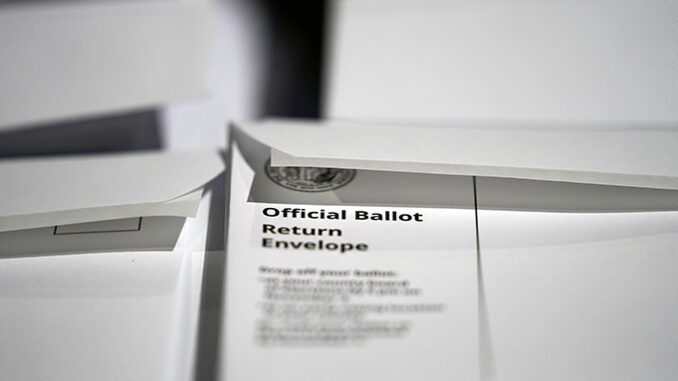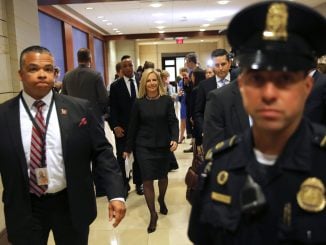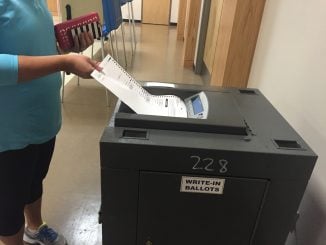
RALEIGH — Members of the North Carolina Senate have filed a bill to block future “sue and settle” agreements like the one the N.C. State Board of Elections director and state attorney general entered into during the 2020 election.
Senate Bill 360, titled, “Prohibit Collusive Settlements by the Attorney General,” was filed on March 25 by the three co-chairs of the Senate Redistricting and Elections Committee, Sens. Paul Newton (R-Cabarrus), Warren Daniel (R-Caldwell) and Ralph Hise (R-Mitchell).
“Elections Director Karen Brinson Bell and Attorney General Josh Stein behaved so egregiously and improperly that they’ve lost the trust of voters and legislators,” said Newton in a statement. “Director Brinson Bell wouldn’t even acknowledge that she changed state law last year, a fact that federal judges and reporters have upheld for months.”
According to the one-page bill, any deal attempting to settle a lawsuit the General Assembly is a party to would require joint approval from the speaker of the House and the president pro tempore of the Senate.
Newton also said that “This bill is intended to make sure no elections director, whether Ms. Brinson Bell or someone else, ever has the power to secretly execute a mid-election law change via secret settlement with political allies.”
The bill was filed just a few days after N.C. State Board of Elections (NCSBE) Director Karen Brinson Bell was questioned by members of the Senate Redistricting and Elections Committee about the settlement she and N.C. Attorney General Josh Stein entered into with Democratic attorney and former Hillary Clinton campaign lawyer Marc Elias.
The agreement tripled the number of days an absentee ballot could be accepted by county election boards, jumping from the three days after election day required by law to nine days. The agreement also attempted to end the legal witness requirement for absentee ballots.
Brinson Bell said during the hearing that she had been given authority by the NCBSE to negotiate the agreement.
Lawmakers, who were a party in the lawsuit, were not informed of the settlement agreement until it had already been filed with the court. Brinson Bell told lawmakers that she was “not aware they were in the dark” about the settlement and that it was “not her concern.”
During questioning, lawmakers pressed Brinson Bell about her role in the settlement, which changed absentee ballot rules after voting was already underway. Brinson Bell maintained her actions and those of the NCSBE were legal. She also maintained the rule changes did not alter state law, a point that both lawmakers and several judges disagreed with.
“I don’t think you changed the law; I think you broke the law,” said Sen. Bill Rabon (R- Brunswick) to Brinson Bell, later adding, “the buck stops with you, Ms. Brinson Bell.”
Federal Judge William Osteen, who had ruled in early August to block the agreement’s attempts to change the absentee ballot signature requirement, said that the board’s settlement action is “an unacceptable misuse of the remedy created by this court’s order.”
Osteen said the fact that the NCSBE had mischaracterized his injunction “in order to obtain contradictory relief in another court frustrates and circumvents this court’s August order.” Osteen also called the board’s actions a “flagrant misuse of this court’s injunctive relief” that “appear to ignore the rule of law.”
As the meeting began to spill over into its second hour, Sen. Carl Ford asked Brinson Bell why they shouldn’t demand her resignation. Brinson Bell offered her 15 years of elections experience, resume and bipartisan appointment by the state elections board as a response, stating that the NCSBE “is who determines my termination and my hire.”



